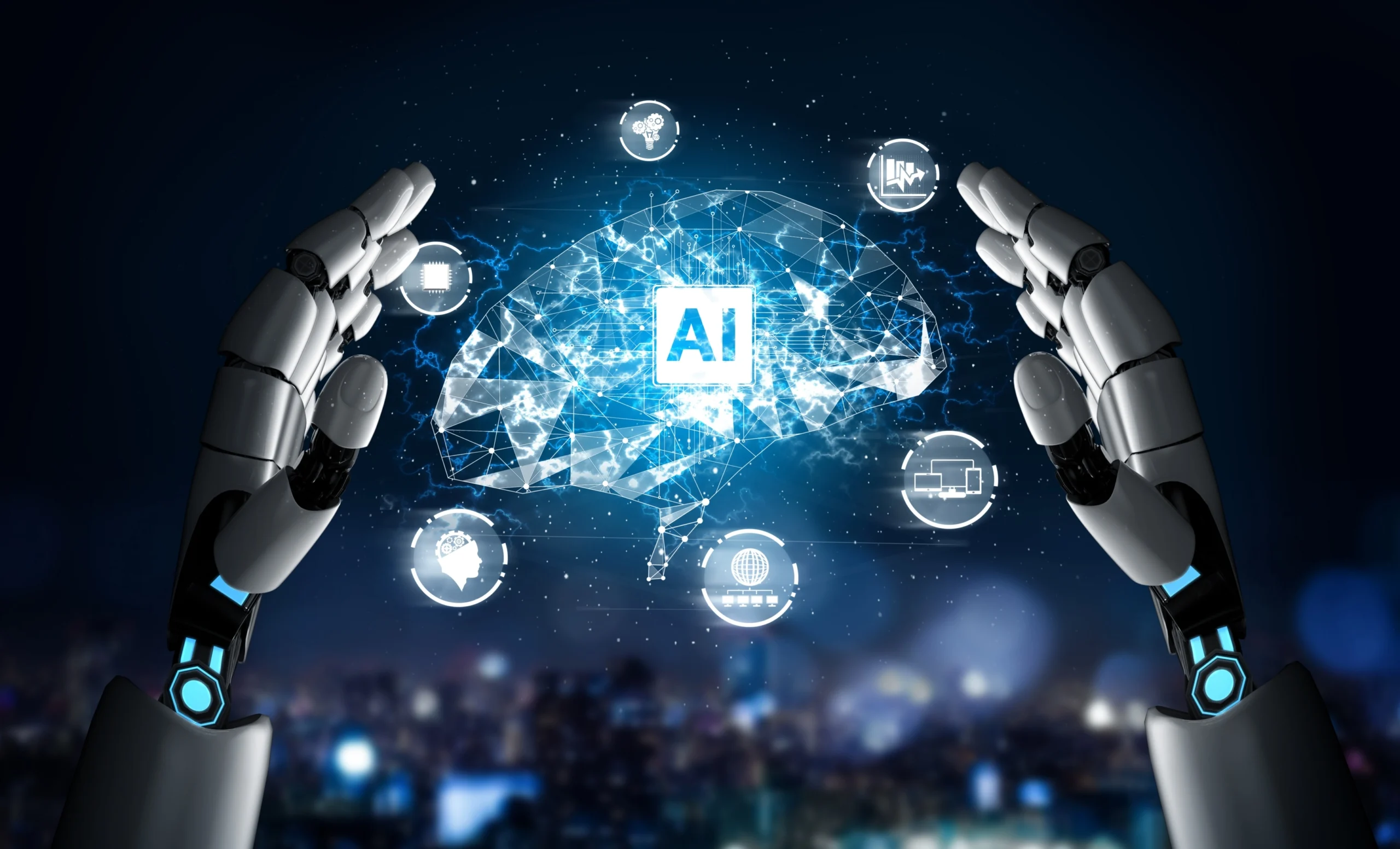Image Credits: URBE University
Understanding Artificial Intelligence: A Glimpse into the Future
Artificial Intelligence (AI) is no longer a concept confined to science fiction. It’s a dynamic, rapidly evolving field that is transforming every aspect of our lives. From the way we work and communicate to how we solve complex problems, AI is at the forefront of technological innovation. But what exactly is AI, and why is it so significant?
What is Artificial Intelligence?
Artificial Intelligence refers to the simulation of human intelligence by machines, particularly computer systems. These systems are designed to perform tasks that typically require human intelligence, such as understanding natural language, recognizing patterns, solving problems, and making decisions. AI can be broadly categorized into two types:
- Narrow AI (Weak AI): This type of AI is designed to perform a narrow range of tasks. It operates under a limited set of constraints and is highly specialized. Examples include voice assistants like Siri or Alexa, recommendation algorithms used by streaming services, and autonomous vehicles.
- General AI (Strong AI): General AI is a more advanced form of AI that can perform any intellectual task that a human being can do. It’s capable of understanding, learning, and applying knowledge in a generalized way. Although this form of AI remains largely theoretical, research in this area is ongoing.
How Does AI Work?
AI operates through a combination of machine learning, deep learning, and natural language processing.
- Machine Learning (ML): This is a subset of AI that enables machines to learn from data. Instead of being explicitly programmed to perform a task, the machine uses algorithms to identify patterns in data, make decisions, and improve its performance over time. For example, a machine learning model can be trained to recognize images of cats by analyzing thousands of images labeled as “cat” or “not cat.”
- Deep Learning: A more advanced subset of machine learning, deep learning uses artificial neural networks to mimic the way the human brain works. These networks are made up of layers of nodes, with each layer processing the data at different levels of abstraction. Deep learning has been particularly successful in areas such as image and speech recognition.
- Natural Language Processing (NLP): NLP is the ability of a machine to understand and generate human language. This technology powers applications like chatbots, translation services, and sentiment analysis tools. NLP allows machines to process vast amounts of text data and derive meaning from it, enabling more natural interactions between humans and machines.
The Impact of AI
AI is having a profound impact across various sectors:
- Healthcare: AI is revolutionizing the healthcare industry by enabling early diagnosis of diseases, personalized treatment plans, and even robotic surgeries. AI-powered tools can analyze medical images, predict patient outcomes, and assist doctors in making more informed decisions.
- Finance: In the financial sector, AI is used for fraud detection, algorithmic trading, and customer service automation. AI systems can analyze market trends, assess risk, and provide personalized financial advice to clients.
- Education: AI is transforming education through personalized learning experiences. AI-driven platforms can adapt to individual learning styles, provide instant feedback, and offer tailored resources to help students succeed.
- Transportation: Autonomous vehicles, powered by AI, are set to revolutionize the way we travel. These vehicles use AI to navigate, avoid obstacles, and make real-time decisions, promising safer and more efficient transportation.
- Entertainment: AI is behind the recommendation engines of streaming services like Netflix and Spotify, helping users discover content based on their preferences. In video games, AI creates more realistic and adaptive opponents, enhancing the gaming experience.
Challenges and Ethical Considerations
While AI offers immense potential, it also raises significant challenges and ethical concerns. One of the primary concerns is the impact of AI on jobs. As AI systems become more capable, there is a fear that many jobs may become automated, leading to widespread unemployment.
Another major concern is bias in AI systems. Since AI models are trained on data, any biases present in the data can be reflected in the AI’s decisions. This can lead to unfair treatment or discrimination in areas like hiring, lending, and law enforcement.
Moreover, the development of AI raises questions about privacy and security. As AI systems become more integrated into our daily lives, the amount of data they collect and analyze will grow, leading to potential risks regarding data breaches and misuse of personal information.
The Future of AI
The future of AI is both exciting and uncertain. Advances in AI could lead to innovations we can’t even imagine today, from solving complex global challenges like climate change to creating entirely new industries. However, the path forward will require careful consideration of the ethical implications and a commitment to ensuring that AI is developed and used responsibly.
In conclusion, Artificial Intelligence is more than just a buzzword—it’s a transformative force that is reshaping our world. As we continue to explore and develop this technology, it’s essential to strike a balance between innovation and responsibility, ensuring that AI serves the greater good and enhances the human experience.

